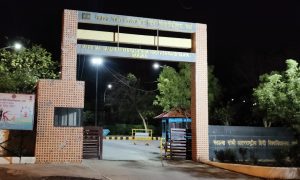Asking some of the basic questions is fundamental to human existence. Being fully aware of what kind of world we live in and using this knowledge to explore alternative possibilities for how the future may unfold, are key to ensuring both short term as well as long term security and prosperity. One major world region, least explored and yet most promising now, is the Antarctic region with the South Pole, which is being rightly explored by India through its scientific expeditions there. On the other side of the globe, India is also keeping up with the Arctic affairs, an equally important region but much more politically alight.
India very recently unveiled its Arctic policy, a 27-page document, that aims to deepen its partnership with the resource-rich Arctic region. The development marks the peak of India’s polar prowess. Yet, India’s every move regarding the Arctic must be well thought out as the policy has been released at a time when seven of the eight permanent members of the Arctic Council, namely the USA, Canada, Finland, Norway, Iceland, Sweden and Denmark, have already boycotted any future talks with Russia (the 8th member) over the Ukraine crisis. However, this may be taken up as an opportunity by India to do what it is good at – Balancing, via “pursuing cooperation and partnership”, as rightly prescribed in its policy as one of the objectives.
The significant expertise in this area that India has been able to acquire due to its association with the Antarctic Treaty System, may come in handy now, which can empower it to play a constructive role in securing a stable Arctic. This also requires advocating for causes, which are more synergetic in nature like sustainable resource development and collaboration with regard to technology, funding, capacity-building, studies and R&D, etc.
India’s interests in the Arctic region are scientific, environmental, commercial as well as strategic. It is believed that the entire region, which is super-rich in natural resources, will become ice-free by the year 2050 and India is one among the many countries to have realised the meaning of this. A recent study based on NASA and ESA satellite data showed that the Arctic ice thinned approx. 1.5 metres between 2018-2021. This revelation itself points towards potential commercial ventures like tapping the oil & gas reserves, metals and minerals in the region, resource-tapping through better studies and exploration, working on possibilities to open Northern Sea Route as a new trade route, etc.
The entire region is vulnerable to unprecedented climatic changes which can be caused by loss of sea ice, ice caps and warming of the ocean and atmosphere. Through its Arctic programme India is working to increase its knowledge findings about the region through research and experimentation, thus making itself future-ready to be in a position to play a greater role when the right time comes and increasing the possibilities of acquiring larger stakes and better status.
Arctic research and R&D finding can also India’s scientific community to study melting rates of the third pole i.e the Himalayan glaciers, which are endowed with the largest freshwater reserves in the world outside the geographic poles. Indian researchers are even monitoring Arctic glaciers for their mass balance, in order to draw comparisons and understand glacial behaviour in the Himalayan region. This makes the Arctic research crucial to India, which has begun to experience hints of global warming, disturbed climatic changes, uneven rainfall pattern, temperature differences, etc.






















 WhatsApp us
WhatsApp us
Pingback: hardcore gayporn
Pingback: Nocode testing tools